CPP Inclusive Growth Conference 2021
Acting now for green, inclusive growth - #IGConf2021
20 October 2021
12:00–4:30pm
Broadcast live from London's County Hall
About the event
Speakers
Programme
Registration
Contact
About the event
Speakers & Programme here
The UK’s annual inclusive growth conference returned on 20 October 2021. Hosted by the BBC’s Ritula Shah and broadcast online, we reflected on how we can – as we emerge out of the pandemic – act now to achieve green, inclusive growth. With a Levelling Up White Paper, COP26, Spending Review and Budget all due, we found ourselves in the midst of a number of key policy developments unfolding at the same time. CPP’s half-day conference created space to step back and take stock with some of the leading thinkers, practitioners and policy makers from the UK and beyond.
Watch the sessions or read a summary in The MJ.
Acting now for green, inclusive growth
In March 2020, Covid-19 took hold in the UK, overshadowing the challenge to ‘get Brexit done’ and creating a huge shift in the political and economic landscape. Governments across the world have had to navigate risk and policy complexity on an unprecedented scale. Domestic priorities have been sidelined, international policy processes postponed, and prolonged uncertainty is here to stay. Meanwhile, climate change does not sleep, and its impacts are becoming ever more real. We now need urgent action to save our climate whilst ensuring the transition to a green economy is just, and one in which as many people as possible can contribute to and benefit from growth. Against this backdrop, CPP’s annual conference discussed what it means to deliver inclusive growth in this new and compounding reality of socioeconomic and environmental challenges.
Before the pandemic, Boris Johnson’s newly elected government pledged to level up the regions and nations of the United Kingdom. As we looked forward to detailed plans on how the government will define and deliver on levelling up before the next election, CPP held steadfast to the view that green, inclusive growth must be the foundation for ‘building back better’. This was a powerful opportunity to reset the assumptions and tools underpinning our economic and social policy framework to better serve all of us and the needs of the planet.
Key questions
- Is there a consensus on the need to ‘build back better’ from the global pandemic and what it should mean in practice?
- What have we learned since the start of the pandemic that can reset and reinforce our commitment to green, inclusive growth?
- How should our renewed understanding of the relationship between health and wealth shape the government’s levelling up agenda?
- How can we bolster efforts to level up education, skills and employment prospects for young people, laying the foundations for inclusive growth over generations?
- How do we deliver a green industrial revolution while ensuring vulnerable communities are not left behind again?
We welcomed our network of mayoral and local government practitioners, academics, business, think tank and charity leaders. Together, we examined these new and evolving challenges facing families, business and policy makers, and identify innovative solutions for inclusive growth in an era of heightened uncertainty and insecurity.
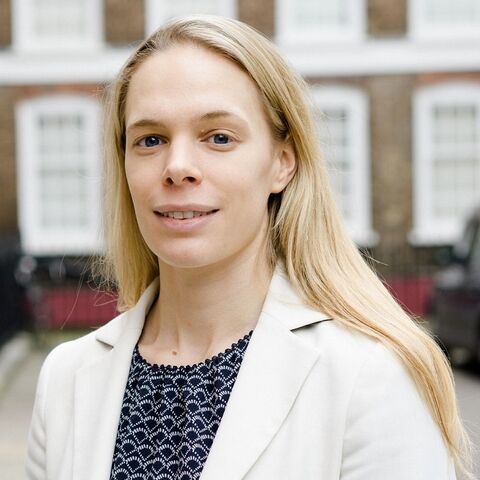
Charlotte Alldritt
Director, Centre for Progressive Policy
Charlotte is Director of the Centre for Progressive Policy. Previously Charlotte was Director of Public Services and Communities at the RSA, where she also ran the Inclusive Growth Commission – chaired by Stephanie Flanders – and City Growth Commission – chaired by Lord Jim O’Neill. Before joining the RSA, Charlotte was a Senior Policy Advisor to the Deputy Prime Minister, Rt Hon Nick Clegg MP, working on immigration, energy and housing. She is an advisor to Power to Change, New Philanthropy Capital, the Civic University Network and an external member of the APPG for Left Behind Neighbourhoods. Charlotte also advises the OECD on Inclusive Growth Financing, is a member of the SIPHER Inclusive Economy Advisory Group at the University of Sheffield and is a member of the Research in Practice Partnership Board.
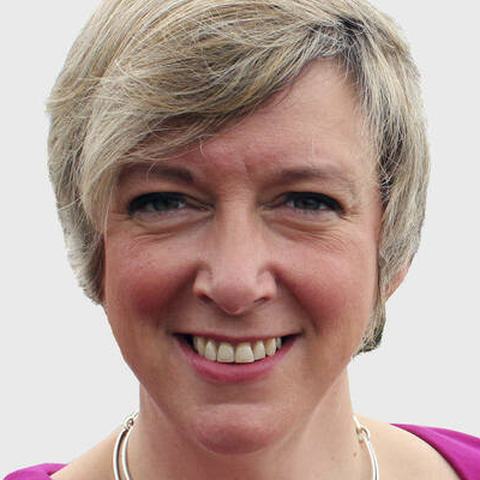
Polly Billington
Director, UK100 Cities Network
Polly established UK100 in 2016 and is the face of the organisation. She is a campaigning and communications specialist with extensive experience in media, government and politics. Polly liaises with local leaders and directly elected mayors and is able to develop and maintain strong relationships with extensive contacts across the political and nonprofit spectrum. A former broadcast journalist (BBC 1993-2007), she was special adviser at DECC (2008-10), Director of Communications on Sadiq Khan’s selection campaign to be a London Mayoral candidate (2015), and Head of Communications and Campaigns at Citizens Advice (2013-15).
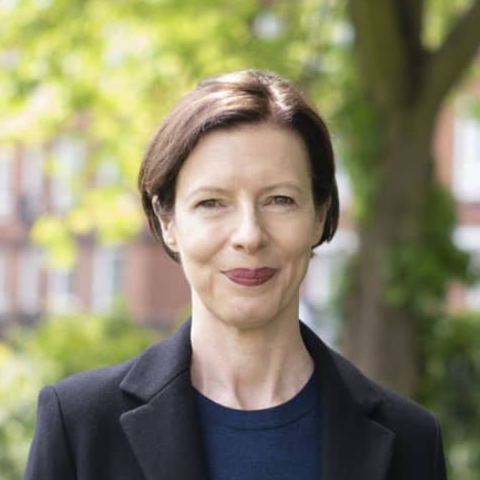
Margaret Bolton
Director of policy and communications, Local Trust
Margaret has a background in policy, research, public affairs and communications. Previous posts include Lottery Communications Director at Arts Council England and Policy and Research Director at NCVO. Before her current role at Local Trust Margaret combined interim and change management contracts with consultancy work. Immediately prior to Local Trust she worked at the Calouste Gulbenkian Foundation (CGF) leading on evaluation and learning and communications.
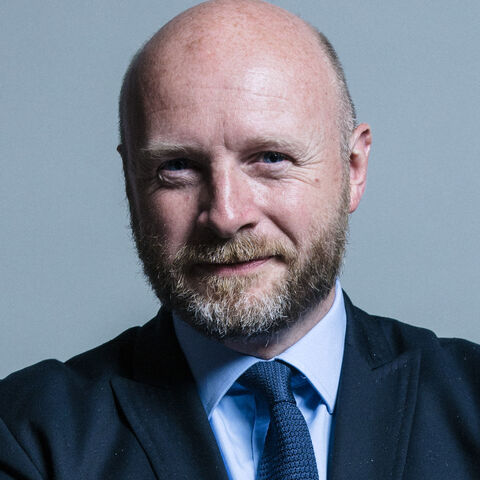
Liam Byrne MP
Member of Parliament for Birmingham, Hodge Hill and Co-Chair of the APPG on Inclusive Growth
A former Cabinet minister, Rt. Hon. Liam Byrne served in the Home Office where, as Minister for Police & Counter-Terrorism and then Minister for Borders & Immigration, he led the total overhaul of the UK immigration system; in 10 Downing Street where, as Cabinet Office Minister, he coordinated cross-government programmes to combat the Great Financial Crisis for Prime Minister Gordon Brown; and in Her Majesty’s Treasury where, as Chief Secretary to the Treasury, he designed the UK’s fiscal consolidation strategy. Before politics, Liam was a Fulbright scholar at the Harvard Business School. He went on to found a high-growth technology start-up, which he gave up in 2004 to serve the poorest community in Britain, Hodge Hill in East Birmingham, where five generations of his family have lived and worked. Today, Liam chairs the APPG on Inclusive Growth and is Shadow Digital Minister.
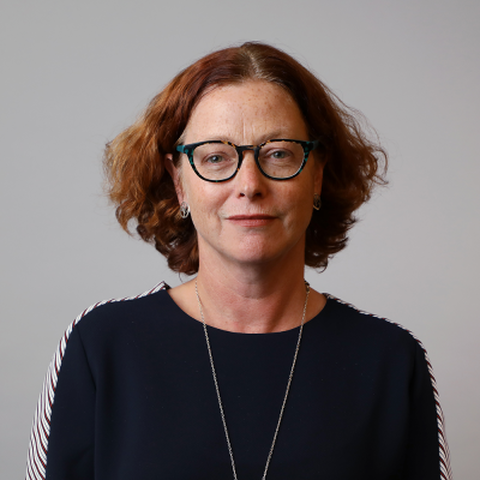
Anita Charlesworth
Director of Research and the REAL Centre, Health Foundation
Anita Charlesworth is the Director of Research and the REAL Centre (Research and Economic Analysis for the Long term) at the Health Foundation, and Honorary Professor in the College of Social Sciences at the Health Services Management Centre (HSMC) at the University of Birmingham. She is a health economist and has a background in government and public policy. Before joining the Health Foundation in May 2014, she was Chief Economist at the Nuffield Trust from 2010–14, where she led the Trust’s work on health care financing and market mechanisms. Prior to that she had roles as Chief Analyst and Chief Scientific Advisor at DCMS (2007–10), Director of Public Spending at the Treasury (1998–2007), and worked as an Economic Advisor at the Department of Health and for SmithKline Beecham pharmaceuticals. She has also worked as a non-executive director in the NHS – for Islington PCT (2007–2011) and The Whittington Hospital (2011–2016) and was specialist advisor to the House of Lords' Select Committee on the long-term sustainability of the NHS in 2016/17. Anita has recently been appointed as an expert adviser for the Health and Social Care Select Committee and also sits on the expert and advisory panel for the Independent Review of Criminal Legal Aid. She is Chair of the OHE Policy Committee (2020) and is also a Commissioner for The Lancet Global Health Commission on Financing Primary Health Care.

Rt Hon Caroline Flint
Former MP for Don Valley
Caroline Flint was the first woman MP for Don Valley from 1997 to 2019 and is one of Labour’s most well-known politicians and regular media contributor and broadcaster. A former Cabinet Minister she served under Blair and Brown in five departments: Home Office, Health, Work and Pensions, Communities and Local Government and the Foreign and Commonwealth Office. In opposition she was Shadow Secretary of State for Communities and Local Government followed by Shadow Secretary of State for Energy & Climate Change – a role in which she led on reform of the energy market and a green plan to tackle climate change and create jobs. From 2015-19 she was a member of the Public Accounts Committee leading on energy and climate change and worked cross-party to win Government support for the Energy Price Cap.
Caroline has been a passionate advocate for rebalancing the UK economy, and for investment in the North as Chair of the Northern Powerhouse All Party Group. She is Chair of the Institute for Prosperity’s Advisory Board which is working cross-party to make the case for more UK manufacturing to help deliver economic growth and create jobs. In the last year she has co-chaired the think tank Onward’s ‘Getting to Zero’ project and produced reports on where the highest emitting communities are, the challenge for incumbent industries, skills and retraining. Published last week the latest report looks at policies to support and sustain green innovation. Caroline is also Chair of Humber NHS FT which provides mental health and community services.
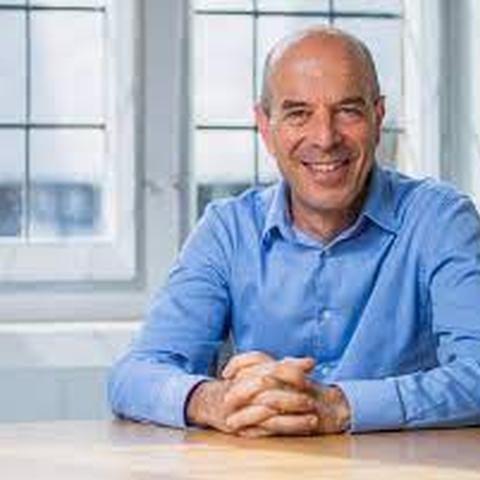
Ian Goldin
Professor of Globalisation and Development
Ian Goldin is Professor of Globalisation and Development at the University of Oxford and the Director of the Oxford Martin Research Programmes on Technological and Economic Change, Future of Work and Future of Development. He is a Professorial Fellow at the University’s Balliol College. From 2006 to 2016 he was the founding Director of the Oxford Martin School.
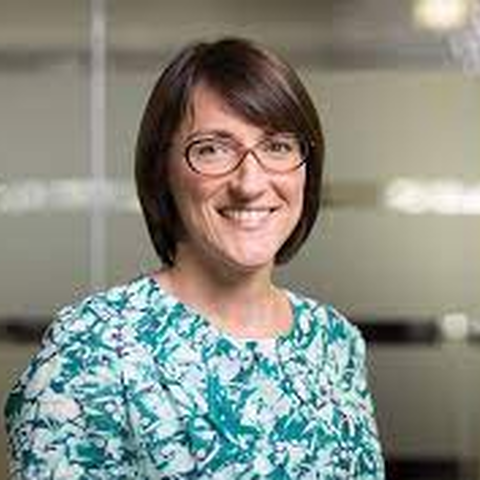
Julia Goldsworthy
Former MP & Director of Strategy at WMCA
Julia Goldsworthy is Director of Strategy for the West Midlands Combined Authority (WMCA), working to unlock the region’s full economic potential, for the benefit of everyone that lives there.
A former MP and Treasury Special Adviser in the coalition government, Julia has more than a decade of experience in developing and implementing policy across a wide range of departments and subject areas. Operating at senior levels in Government and the UK Parliament.
Before joining the WMCA, she spent three years at PwC as a senior adviser. This included developing their market approach to the devolution agenda through her understanding of the processes and spending control frameworks behind policy. This in turn supported local and Combined Authorities as they developed their delivery strategies.
Julia serves on the UK2070 Commission, Chaired by Lord Bob Kerslake, an independent inquiry into city and regional inequalities in the UK.
She is also supporting the Covid Recovery Commission as a member of their policy panel. This commission will examine the impact of the COVID-19 crisis on the levelling-up agenda and will produce bold and practical ideas over the coming months to support higher productivity levels, encourage business investment and promote a culture of innovation across the UK.

Simon Hansen
Former C40 MD & Director of the Copenhagen Centre for Public Policy at the University of Copenhagen
Simon Hansen is the former director of the Copenhagen Center for Public Policy at the University of Copenhagen. Previous to this, he worked as the Managing Director of Climate Solutions and Networks at C40 Cities, where he was responsible for the management of C40’s sectoral climate action programmes. Before joining C40, Simon served as Deputy Director in the City of Copenhagen’s Technical and Environmental Administration, as well as head of its City Development Department, where he oversaw strategic planning, including the delivery of Copenhagen’s ambitious climate plan for the city to be carbon neutral in 2025. Prior to his involvement in city administration, Simon was the Head of Section in the Danish Finance Ministry and Policy Advisor at the UK Cabinet Office. Simon has been a frequent lecturer at the University of Copenhagen with courses on City Governance and Urban Strategy. He holds an MA in political Science from the University of Copenhagen and the New School University in New York City, and a BA in Political Science from the University of Copenhagen.
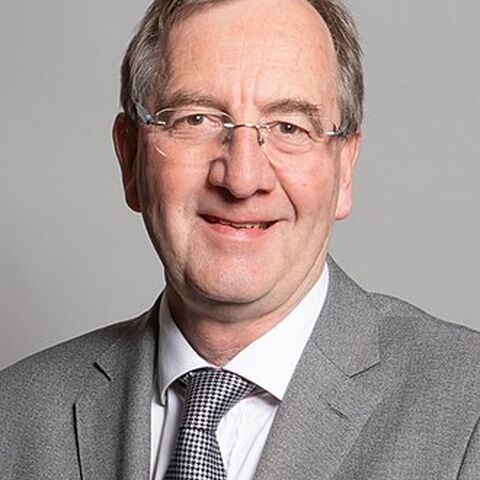
Paul Howell MP
Member of Parliament for Sedgefield and Co-chair of the APPG for 'Left behind' neighbourhoods
Paul was born in Co. Durham and grew up in Ferryhill and Newton Aycliffe before moving to Darlington. He attended school at Dean Bank Primary School in Ferryhill, Sugar Hill Primary School, Newton Aycliffe and The Avenue Comprehensive School.
Paul qualified as an Accountant and his career included positions at Darchem, Perstop-Warerite, Blue Circle and Wilsonart.
Paul joined the Conservative Party in 2010 and has been an elected County and Borough Cllr.
Paul secured a 4,513 majority in Sedgefield in the last General Election. He is committed to the Government’s ‘levelling up’ agenda to build stronger and more resilient communities in the areas that have historically most lacked investment in both physical and social infrastructure.
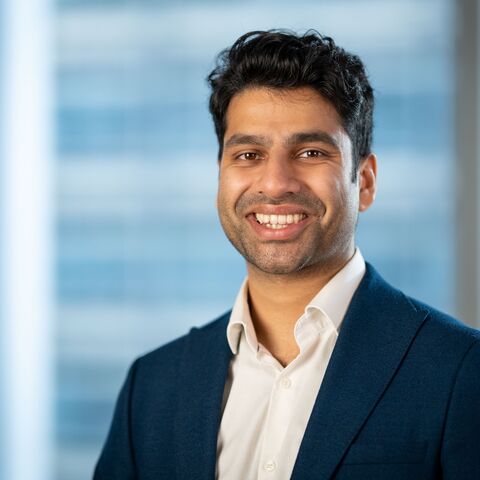
Ryan Jude
Programme Director, Green Finance Institute
Ryan is the Programme Director for Green Taxonomy work at the Green Finance Institute, with a focus on advising the UK Government on implementing a UK Taxonomy - a common framework setting the bar for investments that can be defined as environmentally sustainable - through the Green Technical Advisory Group (GTAG).
Ryan also works with the Institute's sector-focused coalitions and initiatives, bringing together key stakeholders across the public and private sectors, academia and civil society in order to unlock barriers to the deployment of capital to deliver tangible economic outcomes. Ryan previously led the Institute's Zero Carbon Heating Taskforce, as part of the Coalition for the Energy Efficiency of Buildings (CEEB), and is currently leading the Local Climate Bond (LCB) Campaign.
Ryan co-hosts the Institute's Green is the New Finance podcast series, showcasing leading thinking on how to mobilise capital towards a greener, more inclusive and climate resilient global economy.
Before joining the Institute, Ryan worked in investment banking at Cantor Fitzgerald and Jefferies, specialising in power, energy and infrastructure, with a particular focus on renewable energy transactions. He has experience providing financial and strategic advice to leading clients on high-profile, global transactions, in both mergers and acquisitions and project finance.
Ryan holds a first-class honours degree in mathematics from Imperial College London.

Dr Dambisa Moyo
AUTHOR & ECONOMIST
Dr. Dambisa Moyo is a pre-eminent thinker, who influences key decision-makers in strategic investment and public policy. She is respected for her unique perspectives, her balance of contrarian thinking with measured judgment, and her ability to turn economic insight into investible ideas.
Dambisa Moyo is a co-principal of Versaca Investments - a family office, focused on growth investing globally. She serves on a number of global corporate boards including: 3M Corporation, Chevron, and Conde Nast, as well as, the Oxford University Endowment investment committee. Her areas of interest are in capital allocation, risk, and ESG matters. She holds a Doctorate in Economics from Oxford, a Masters from Harvard, and is recognized for fresh and innovative ideas as the Author of four New York Times Bestselling Books. Her newest book “How Boards Work” was ranked number 5 on the Wall Street Journal best business book list.
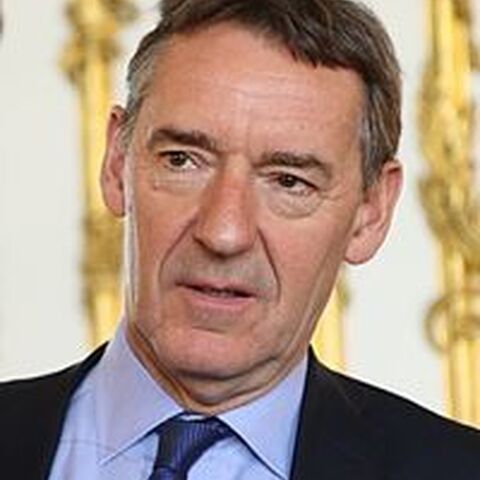
Lord Jim O'Neill
Vice Chair of the Northern Powerhouse Partnership, Chair Northern Gritstone, and Former Commercial Secretary to the Treasury
Lord Jim O’Neill is currently the vice-chair of the Northern Powerhouse Partnership, a member of Shelter Social Housing Commission and the Chair of Chatham House. He worked for Goldman Sachs from 1995 until April 2013, spending most of his time there as Chief Economist, where he became best known for coining the term BRIC. He chaired the Cities Growth Commission in the UK until October 2014 when it provided its final recommendations. He led an independent review into antimicrobial resistance (AMR) for David Cameron from late 2014 to September 2016 and remains focused on this challenge. Since leaving government in September 2016, having been Commercial Secretary to the Treasury, Jim moved to the crossbenches of the House of Lords.
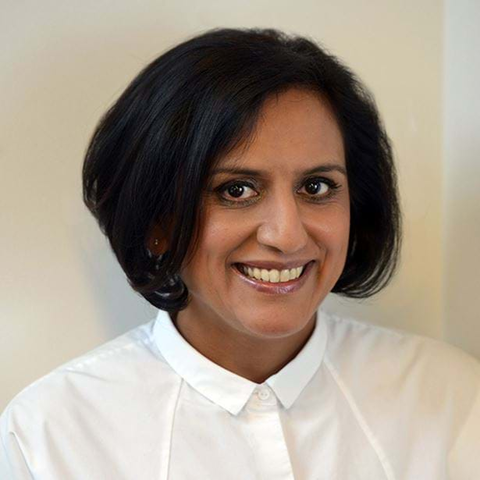
Ritula Shah
Broadcast journalist
Ritula Shah is a journalist and broadcaster. She is the lead presenter of The World Tonight on BBC Radio 4, a daily news programme with a focus on international affairs, domestic politics and with a commitment to cover climate change. Additionally, Ritula presents The Real Story on the World Service, a weekly panel programme which debates and investigates a wide range of global stories and ideas. Ritula regularly chairs events for think tanks and universities on everything from foreign policy to the digital transformation.
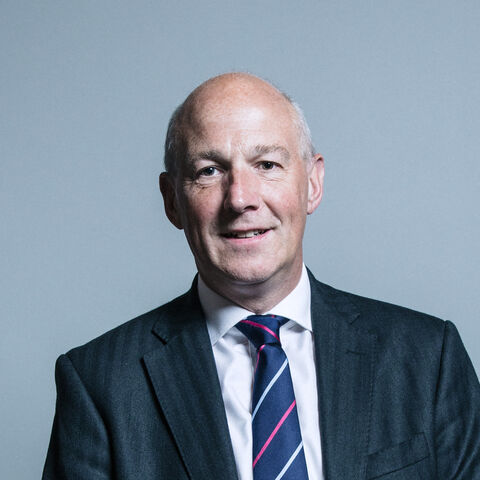
John Stevenson MP
Member of Parliament for Carlisle and Chair of the APPG for Key Cities
John was educated at Aberdeen Grammar School and Dundee University.
After graduating from Dundee, John went to Chester College of Law where he studied English Law and subsequently qualified as a solicitor in 1990. He went on to become a partner in Bendles Solictors, Carlisle.
In 2010 John was elected Conservative MP for Carlisle with a majority of 853. He was the first Conservative to be elected as MP for Carlisle since 1959. He was re-elected in 2015, 2017, and as of the December 2019 election John’s majority now stands at 8319.
John organises and hosts an annual Carlisle Skills Fair. The event is a huge success attracting over 2500 jobseekers and young people and 80 businesses, organisations and training providers from the Carlisle constituency.
He has a keen interest in business, education and local government reform and was a member of the Communities and Local Government Select Committee during the last Parliament.
John is also a keen sportsman and prior to his election he made a pledge that should he be elected he would cycle from his constituency to London. He completed the cycle in October 2010 raising £13,500 for the Eden Valley Hospice. He also cycled from Lands End to John O’ Groats raising further funds for the charity.
Aside from his duties as a constituency MP, he is the chairman of the All Party Parliamentary Group (APPG) for Food and Drink, which discusses the direction of national policy on British food and drink manufacture. He is Chair of the West Coast Mainline APPG, Chair of the APPG on Family Businesses and a member of the APPG on the Nuclear Industry.
Programme
- 12:00
-
Opening session
Despite their many successes, globalisation and market capitalism have increasingly become a cause for concern. The financial crisis in 2008 plunged advanced western economies into a pronounced depression, and ushered in a period of existential angst: was capitalism working, and if so for whom, on what terms? Now, having experienced a global health crisis whose economic ramifications – from large-scale job losses to extreme hunger – have further exacerbated inequalities within and between people and places around the world, we are faced with similar questions once again. How can we can we create an economic system that serves societies at large rather than the narrow interests of a few? How do we ensure that our road to recovery bakes in the lessons of the pandemic – including the importance of population health and the positive role that firms can play in their communities and beyond? How can we accelerate these shifts in a way that helps us to achieve the UN Sustainable Development Goals and work together to tackle climate change?
As CPP’s annual inclusive growth conference returns, our opening session will hear from three leading thinkers on the scale of the challenge ahead in the UK and internationally if we are to act now for clean, inclusive growth.
Welcome by Charlotte Alldritt, Director, Centre for Progressive Policy
Getting lost: from a global crisis to a better world, Professor Ian Goldin, Professor of Globalisation and Development
At a cross-roads: the path towards a healthy recovery, Anita Charlesworth , Director of Research and the REAL Centre, Health Foundation
Bringing businesses on board, Dambisa Moyo, author and economist
- 13:30
-
PANEL DISCUSSION: Beyond roads and railways. Making levelling up work for cities
This event is run in partnership with Bristol Ideas as part of the 2021 Festival of the Future City.
The Prime Minister’s July levelling up speech raised expectations, but lacked detail on how the government will deliver on its flagship domestic agenda. A coherent strategic vision is needed to tackle entrenched inequalities between and within the nations, regions and places of the UK. This will require strong leadership across central government – arguably given impetus by the recent reshuffle – and a commitment to enable local leadership on the ground.
This panel will consider: What can cities do to ensure levelling up works for their communities? What policy changes are needed at a local, regional and national level? Should city mayors and metro mayors have more autonomy to achieve this? What should levelling up deliver when it comes to creating healthier, greener and fairer cities?
- Julia Goldsworthy, Former MP & Director of Strategy at WMCA
- Lord Jim O’Neill, Former Vice Chair of the Northern Powerhouse Partnership and Former Commercial Secretary to the Treasury
- John Stevenson, MP for Carlisle and Chair of the APPG for Key Cities
- 14:30
-
DEBATE: The road to a truly Just Transition. Adapting today to avoid economic and environmental catastrophe tomorrow
Green jobs have been a key part of the ‘Building Back Better’ narrative in the UK and US, squaring the circle of economic prosperity and reducing emissions. But green jobs are just one part of the equation. Achieving a just transition, so that the poorest households do not bear the greatest costs of net zero, will demand more: more support for disadvantaged communities, more proactive retraining and skills programmes and a concerted approach to nurturing carbon reducing innovation and technology for the future. The Intergovernmental Panel on Climate Change warns action is needed now to avoid environmental catastrophe: economic catastrophe will follow unless clean, inclusive growth becomes a reality.
In some places, the transition to a green economy is already reaping rewards. Hull, for example, has expanded its green jobs portfolio thanks to the opening of Siemens Gamesa’s wind turbine factory. But for others, such as Redcar (which saw its steel plant close in 2015), there is a mountain to climb. As we head into the COP26 Summit, green growth policies need to be rooted in places, supporting businesses and communities to adapt, and fast.
This event will ask: How can we best direct green investment – at a sectoral, national and local level – to places and communities that need it the most? How can we ‘match’ those in high-emitting sectors to new green industries? What are the trade-offs and choices to be made as we scale back our reliance on carbon intensive technologies, and lay the foundations for clean, inclusive growth over the long term?
- Polly Billington, Director, UK100 Cities Network
- Simon Hansen, former C40 MD & Director of the Copenhagen Centre for Public Policy at the University of Copenhagen
- Ryan Jude, Programme Director, Green Finance Institute
- Rt Hon Caroline Flint, Former MP for Don Valley
- 15:30
-
IN CONVERSATION: Levelling Up in the long run. Finding the way towards green, inclusive growth
As the UK emerges out of the pandemic and the government renews its focus on levelling up, MPs from the APPG Inclusive Growth and APPG for Left Behind Neighbourhoods come together to urge change. The government’s commitment to levelling up together with the UK’s presidency of COP26 and our global role in pioneering health technologies and treatments during the pandemic and beyond all points towards the UK leading the way forward for a healthier, green and more inclusive future.
This session will launch a cross-party commitment to address the social and economic barriers holding back people and places across the UK through a long-term plan to span successive parliaments. Members of both APPGs, including both Labour and Conservative will be putting forward a transgenerational plan that forges a new system of green and inclusive growth where as many people as possible can contribute to and share in the prosperity of the nation.
- Charlotte Alldritt, Director of the Centre for Progressive Policy
- Margaret Bolton, Director of Policy and Communications at Local Trust
- Liam Byrne, MP Birmingham, Hodge Hill and Co-Chair of the APPG on Inclusive Growth
- Paul Howell, MP for Sedgefield and Co-chair of the APPG for 'Left behind' neighbourhoods
- 16:20
-
Closing remarks
- 16:30
-
End
Previous Conference
After the inaugural conference in October 2018, CPP's second annual conference took place in November 2019. With almost 200 attendees throughout the day and over 40 speakers, the programme conveyed various topics with a focus on levers for change: delivering inclusive growth. Watch our highlights video with interviews including Sir Vince Cable, Caroline Freund, Bruce Katz, Lord David Sainsbury, Lord Jim O'Neill and Sunder Katwala.